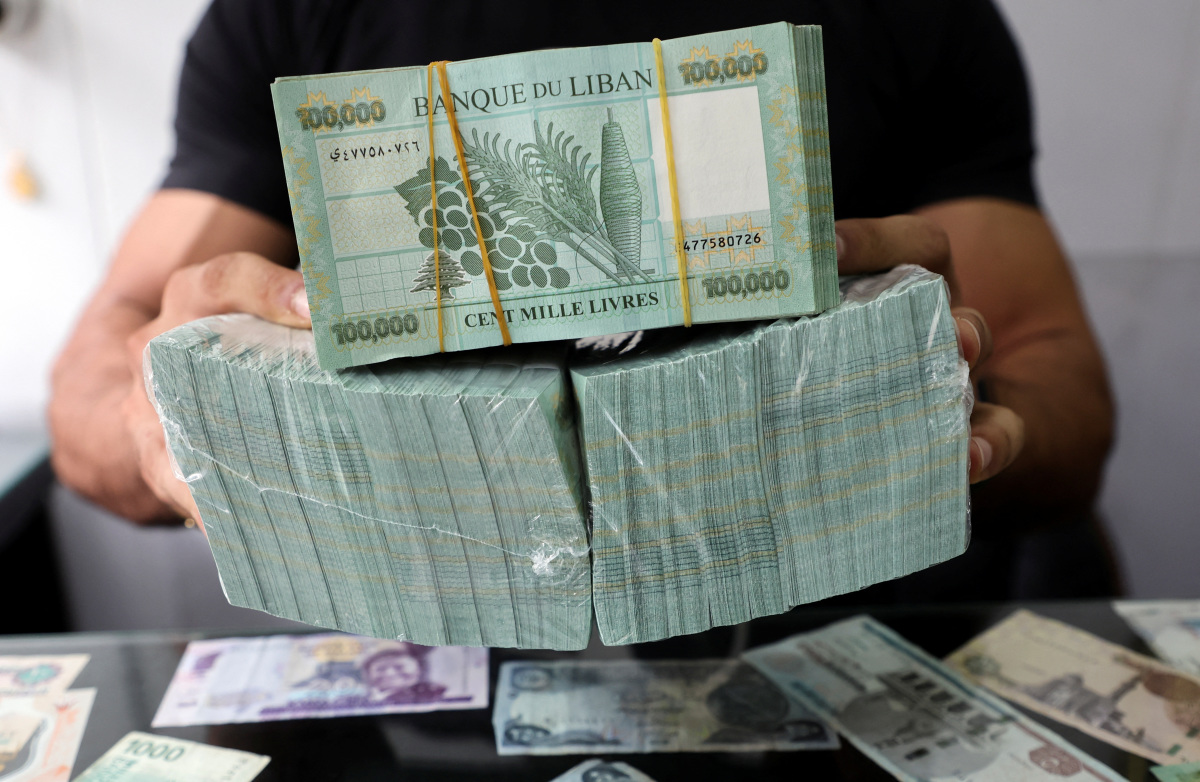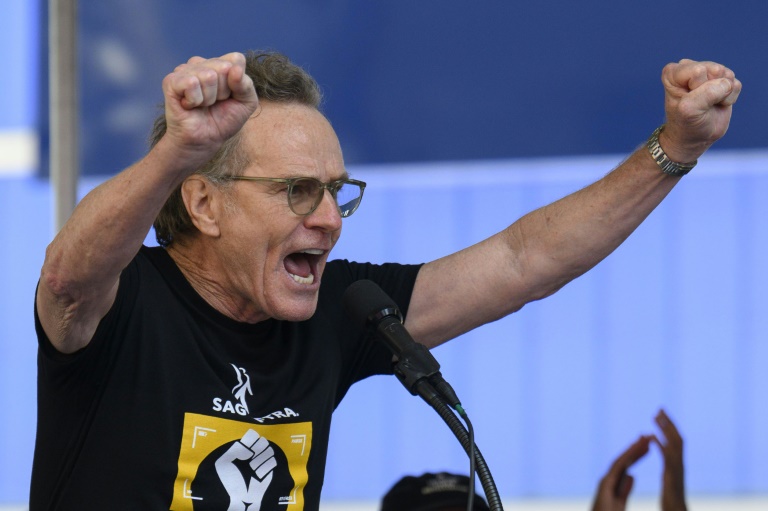Reuters
When Caroline Sadaka buys groceries in the Lebanese capital Beirut, she keeps her phone in hand – not to check her shopping list but to calculate the spiralling costs of goods now priced at volatile exchange rates that vary by store and sector.
As Lebanon’s economy continues to collapse, an array of exchange rates for the local pound has emerged, complicating personal accounting and dimming hopes of fulfilling a reform requirement set out by the International Monetary Fund.
The government’s official exchange rate was set at 15,000 pounds to the U.S. dollar in February, a nearly 90% devaluation from the longtime peg of 1507.5.
But the Central Bank is selling dollars at a rate of 79,000 to the greenback while the finance minister intends to calculate tariffs for imported goods at 45,000 pounds.
The parallel market rate is meanwhile hovering around 107,000 pounds and changing daily. Supermarkets and fuel stations are required to post signs with the value they’ve adopted for the day, but the rate is changing so fast that many are pricing in the relatively stable U.S dollar instead.
Examining a can of tuna, Sadaka illustrated the daily quandary faced by shoppers. “This doesn’t have a (logical) price. If you look, it’s in Lebanese pounds, so is this the price? Or is this an old price, and there’s now a price in dollars?,” she wondered.
She quit her job as a school teacher which paid her in local currency, the value of which has decreased by more than 98% against the dollar on the parallel market since 2019.
That’s when the economy began unravelling after decades of unsound financial policies and alleged corruption.
To solve the exchange rate confusion, the government needs to implement one unified rate. This is among pre-conditions set by the International Monetary Fund nearly a year ago for Lebanon to get a $3 billion bailout.
But the lender of last resort says reforms have been too slow. They have met resistance from politicians who are shielding vested interests and dodging accountability.
In the meantime, the country has been moving towards a cash-based and dollarized economy given spiralling inflation and restrictions by banks on transactions.
Shop owner Mahmoud Chaar told Reuters the exchange rate was changing so fast that his business was losing money overnight.
Like many business owners, Chaar has to pay in U.S. dollars to import goods but sells in Lebanese pounds. One day, he had sold all his goods based on one rate but woke up the next to find it had jumped nearly 10,000 pounds per U.S. dollar.
“Basically, we lost in the exchange rate difference what we had made in profit,” Chaar told Reuters.
Economist Samir Nasr said the varying rates across sectors were making personal accounting “messy” for Lebanese and unifying them was more urgent than ever.
“What is required is a full group of reforms and steps that will allow for the economic situation to stabilize in general – and would then allow the exchange rate to be unified,” he said.






